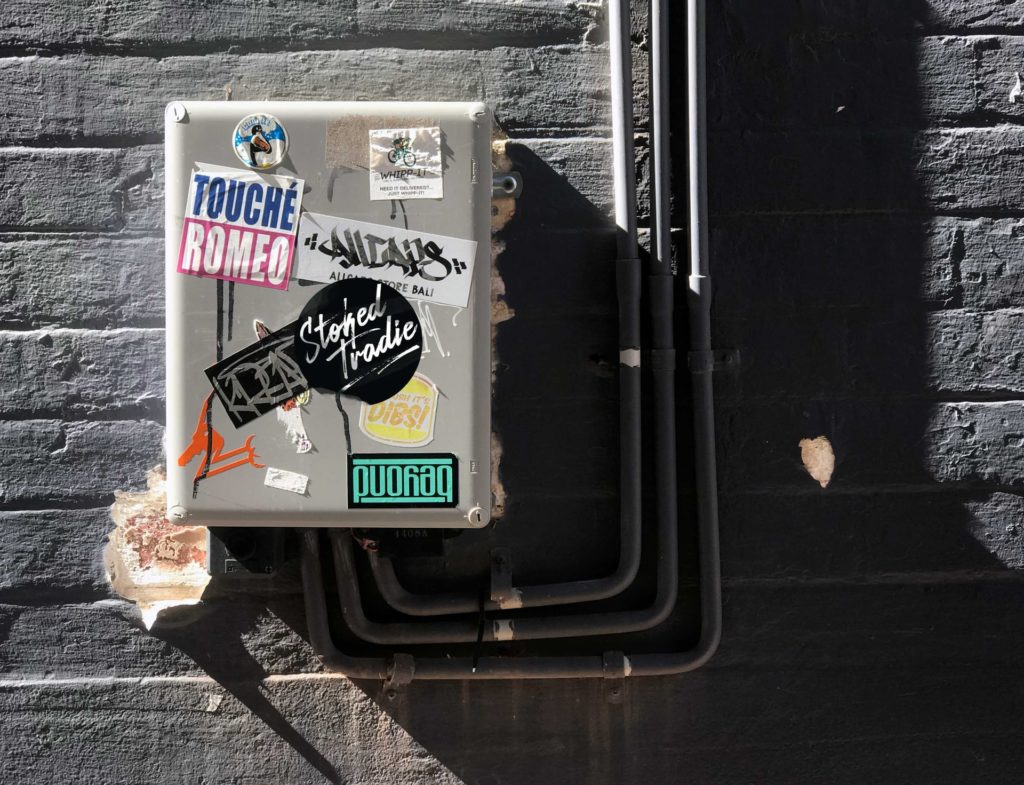Have you ever been using an appliance and suddenly there’s no power from the outlet? It could be the result of your circuit breaker being tripped. From hot wires, overloaded circuits, and ground faults, we’ll take a look at the multiple common reasons that your breaker is being a nuisance. We’ll also tell you about how to solve those problems yourself or with the help of a professional electrician.
Circuit Overload
One of the main reasons your home’s circuit breakers keep tripping is because of an overloaded circuit. This happens when too many electrical devices are connected to a circuit for it to handle. This is a common issue in older homes with older breakers. This causes an electrical system to overheat and shut down automatically. Overloading not only destroys connected appliances, but that blown fuse can put you at risk for an electrical fire. The circuit breaker trips upon detecting these conditions, alerting a homeowner to the issue. Recurrent breaker trips aggravate the damage to your electrical panel, causing significant wear to the circuit breaker over time.
If individual circuits are causing issues, you’ll want to shut the main breaker off. Make sure that all electrical power is off by using a voltage tester to monitor amps and wattage. After confirming there is no current flow, use a screwdriver to disconnect the wire from the terminal, prying out the old tripped breaker, and putting in a new one. With this fix complete, turn the main breaker back on and test each branch circuit breaker to make sure your breaker panel is operating at full capacity. If the circuit breaker keeps tripping, contact a professional electrician, who will have the proper tools to help diagnose the issue with the electrical panel.
Frequent Short Circuits
Short circuits are a huge fire hazard and require immediate action. Frequent short circuits happen when an active electrical wire contacts a neutral wire, which is often brought on by undetected faults within a home’s wiring. Short-circuiting produces massive amounts of heat, causing the circuit breaker to trip from a blown fuse. This can even result in odd noises, sparks, and a burning smell. Routine maintenance can ensure connections in your electrical panel are in good condition, avoiding the chance of electrical malfunction over time. Keep in mind, fixing electrical short circuits requires the assistance of an electrician.
A tripped circuit breaker can also be brought on by loose or faulty wiring. This is commonly seen when you notice that certain electric outlets are not allowing fixtures or kitchen appliances to operate properly. Homeowners should check for any loose wires, checking each area of your home for any possible issues. This includes checking all appliances that are connected to the circuit. Sometimes a circuit breaker trips because of a shortage in an appliance like a microwave, so check the exterior of the cord. If you notice any signs of burning or brown or black discoloration, you may need to replace the power cord.
Ground Faults
Ground surges happen when an active electrical wire makes contact with a ground wire. These ground faults create excess electric current, overheating and causing a circuit breaker to shut down to prevent further damage. Handling a ground surge is dangerous and requires the help of a professional electrician to help determine the culprit of these issues.
If a new circuit breaker or any other electrical work is needed, do not go it alone. Be sure to have an expert on your side with the proper safety devices to operate at minimal risk. This is the case for any particular circuit, ranging from older houses to new homes. They’ll also be able to provide electrical safety tips to prevent any dangerous situations from arising in the future.

